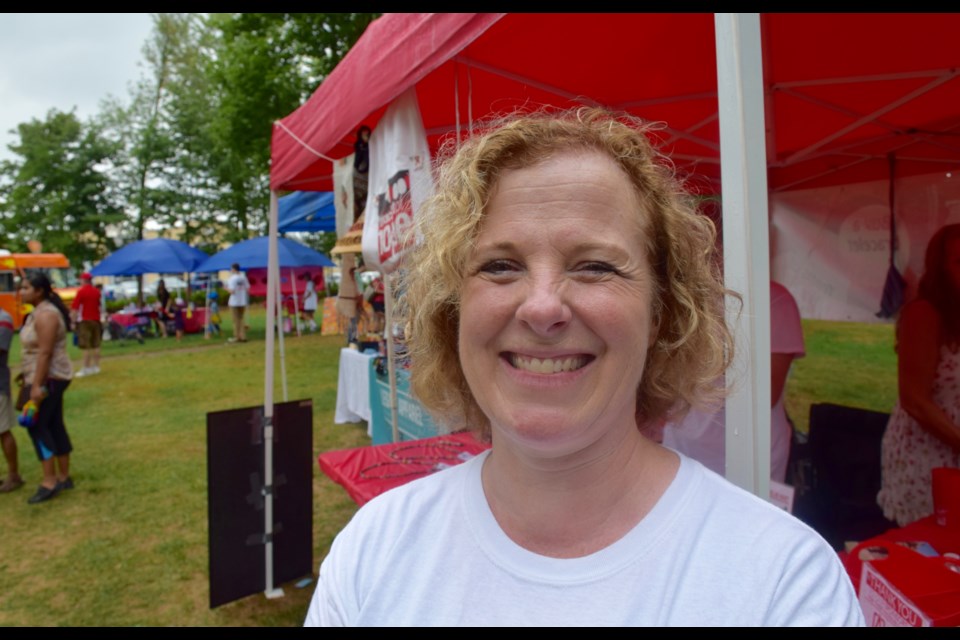Rain has been very rare in Guelph this summer, but lots of it fell Saturday and kept attendance low at Bracelet of Hope’s 10th Anniversary Summer Festival in Royal City Park.
Nevertheless, the weather seemed not to dampen the optimism of the organization’s founder Anne-Marie Zajdlik, who believes HIV/AIDS can be eliminated in Lesotho within the next few years. She wants to spend more time in the country to help heal its people, and has plans to create a second treatment centre in that country.
“Wow, 10 years,” Zajdlik said Saturday afternoon, as live music played from the band shell, children made giant bubbles, and a pair of super heroes tried to get up the nerve to dance.
“It’s unbelievable,” Dr. Zajdlik said, speaking of the milestone anniversary. “I would have never guessed. It’s nice that it has a life of its own.”
She said the charitable organization, founded to fight AIDS in Lesotho, is gifted with a number of loyal supporters, an exceptional staff and board of directors, and it attracts new champions who give it new life.
Lesotho is a country with one of the highest prevalence rates for HIV/AIDS in the world. According to information compiled by the organization AVERT, there are currently 310,000 people in the country of just over two million living with HIV, representing a 22.7 percent prevalence rate.
There were 18,000 new HIV infections in 2015, and nearly 10,000 deaths from the disease last year. There are over 150,000 children orphaned by AIDS in the country.
Bracelet of Hope raised $1 million in its first two years and opened a HIV/AIDS treatment clinic in Lesotho. The organization has since raised about another $3 million, and is using those funds primarily to support children orphaned by AIDS in Lesotho, and for programs with a goal to foster business development and generate employment.
Its largest program in Lesotho revolves around a series of foster homes - six homes in the country that care for orphans. The program employs foster mothers on a full-time basis to run the homes, which house up to 10 children.
Zajdlik said she sees herself semi-retiring from her medical practice and spending more time in Lesotho within the next five years. She wants to continue to help the country eliminate HIV/AIDS.
“I want the treatment structure there that can get people to that level,” she said, adding the next step will be to raise enough funds to open a second private clinic in Lesotho. The first clinic was turned over to the government of Lesotho some years back.
